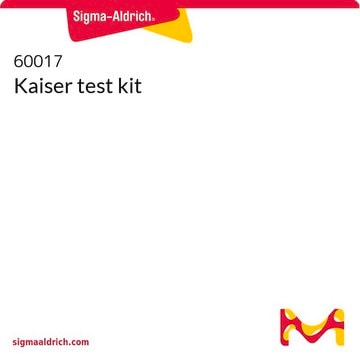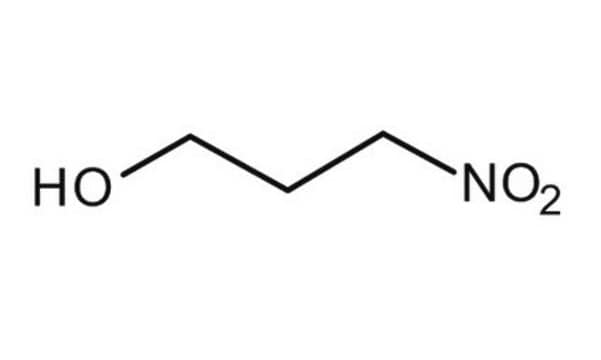N22908
3-Nitropropionic acid
97%
Synonym(s):
β-Nitropropionic acid, 3-Nitropropanoic acid, Bovinocidin, Hiptagenic acid
Sign Into View Organizational & Contract Pricing
All Photos(1)
About This Item
Linear Formula:
O2N(CH2)2CO2H
CAS Number:
Molecular Weight:
119.08
Beilstein:
1759889
EC Number:
MDL number:
UNSPSC Code:
12352103
PubChem Substance ID:
NACRES:
NA.22
Recommended Products
Quality Level
Assay
97%
form
crystals
mp
68-70 °C (lit.)
storage temp.
2-8°C
SMILES string
OC(CC[N+]([O-])=O)=O
InChI
1S/C3H5NO4/c5-3(6)1-2-4(7)8/h1-2H2,(H,5,6)
InChI key
WBLZUCOIBUDNBV-UHFFFAOYSA-N
Looking for similar products? Visit Product Comparison Guide
Biochem/physiol Actions
Excitotoxin shown to cause brain lesions similar to those of Huntington′s disease.
replaced by
Product No.
Description
Pricing
Signal Word
Danger
Hazard Statements
Precautionary Statements
Hazard Classifications
Acute Tox. 3 Oral
Storage Class Code
6.1C - Combustible acute toxic Cat.3 / toxic compounds or compounds which causing chronic effects
WGK
WGK 3
Flash Point(F)
Not applicable
Flash Point(C)
Not applicable
Personal Protective Equipment
dust mask type N95 (US), Eyeshields, Gloves
Choose from one of the most recent versions:
Already Own This Product?
Find documentation for the products that you have recently purchased in the Document Library.
Emmanuel Brouillet et al.
Journal of neurochemistry, 95(6), 1521-1540 (2005-11-23)
Huntington's disease (HD) is a neurodegenerative disorder caused by a mutation in the gene encoding Huntingtin. The mechanisms underlying the preferential degeneration of the striatum, the most striking neuropathological change in HD, are unknown. Of those probably involved, mitochondrial defects
E Brouillet et al.
Current opinion in neurology, 8(6), 469-473 (1995-12-01)
Compelling evidence suggests that a defect in energy metabolism may play a role in the pathogenesis of various degenerative disorders including Parkinson's disease and Huntington's disease. The behavioural and neuropathological consequences in primates of chronic systemic administration of mitochondrial toxins
Esther T Menze et al.
Neurotoxicology, 33(5), 1265-1275 (2012-08-02)
Huntington's disease (HD) is a progressive neurodegenerative disorder with a spectrum of cognitive, behavioral, and motor abnormalities. The mitochondrial toxin 3-nitropropionic acid (3-NP) effectively induces specific behavioral changes, primarily manifested as prepulse inhibition (PPI) deficit of acoustic startle stimuli, and
Wang-Tso Lee et al.
Progress in neurobiology, 72(2), 87-110 (2004-04-06)
Huntington's disease (HD) is an inherited neurodegenerative disease, in which there is progressive motor and cognitive deterioration, and for which the pathogenesis of neuronal death remains controversial. Mitochondrial toxins like 3-nitropropionic acid (3-NP) and malonate, functioning as the inhibitors of
Samantha Corrà et al.
iScience, 26(10), 107955-107955 (2023-10-09)
Mutations in MPV17 are a major contributor to mitochondrial DNA (mtDNA) depletion syndromes, a group of inherited genetic conditions due to mtDNA instability. To investigate the role of MPV17 in mtDNA maintenance, we generated and characterized a Drosophila melanogaster Mpv17
Our team of scientists has experience in all areas of research including Life Science, Material Science, Chemical Synthesis, Chromatography, Analytical and many others.
Contact Technical Service








